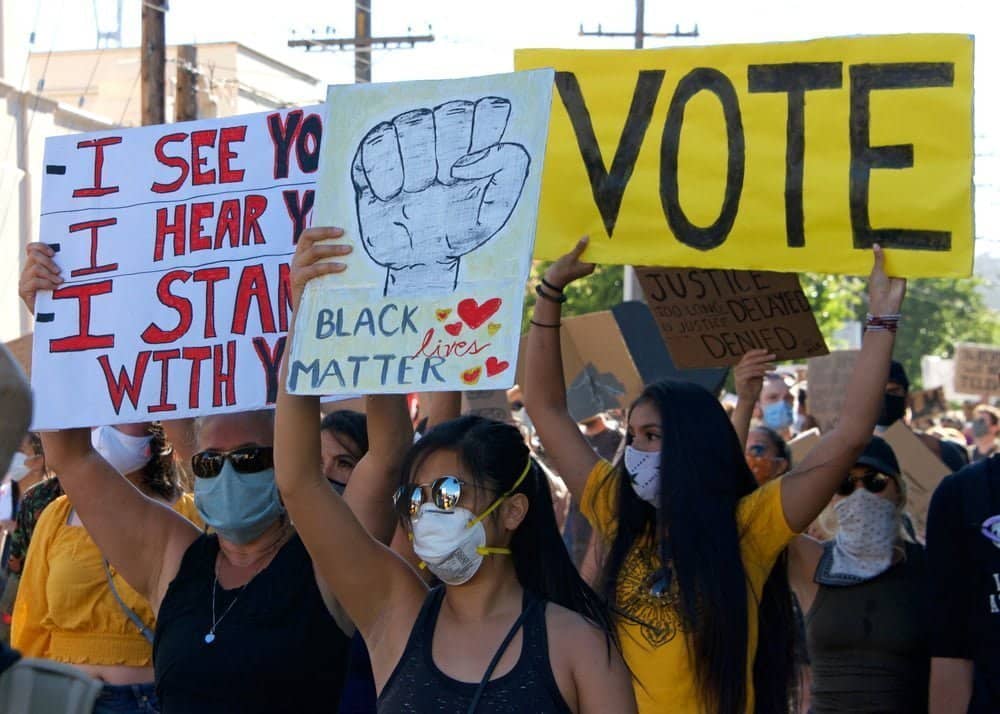If you are 18 or 19 years old, would you be disturbed if Pennsylvania’s Republican Party told you that you’re not old enough to vote in the upcoming November election? This could happen next year.
Most people are familiar with how Pennsylvania Senate Bill 106 attempts to ban abortion by the Republican-led legislature, but there’s a lot more to the bill that seeks to change the state constitution than that. It’s a power grab to ensure control in the Commonwealth remains in Republican hands by limiting, and eliminating, who may vote.
“The right of citizens of the United States, who are eighteen years of age or older, to vote shall not be denied or abridged by the United States or by any State on account of age.” — 26th Amendment of the U.S. Constitution
Passed by Congress in 1971, the 26th Amendment was ratified by the Commonwealth of Pennsylvania that same year.
Believe it or not, the Pennsylvania Constitution never caught up; Article VII, Section 1 still says the voting age is 21, but that age qualifier is rendered moot by federal law.
“This is an explosive situation and young people are in genuine danger of being disenfranchised,” said Daniel Kurz, a Scranton resident and adjunct professor of political science at Middlesex County College in New Jersey. “This should be front page news.”
He is right. So I tried to find out why language appears in SB106 that would seemingly seek to increase the voting age from 18 to 21.
I went in search of that answer by calling upon Republican state representatives in Bucks County who voted for this bill. Calls were placed to Representatives Schroeder, Staats, Farry, Thomas, and Polinchock.
An aide from Rep. Frank Farry’s office returned the call but had no answers. Rep. Craig Staats (R-145) was the only representative to return my call and actually discuss the bill. He acknowledged that SB106 contrasts with the U.S. Constitution. He said he had suggested the bill be amended, but it wasn’t and he voted for it anyway. I asked how the language came to be part of this bill in the first place and he recommended that I call Senator Dave Argall (R-29), the bill’s primary sponsor.
So I did.
A legislative aide from Argall’s office told me that: I had an incorrect copy of the bill (I did not), that the language in the bill was a mistake (I don’t believe it is), that the proposal to increase the voting age would bring the state constitution into compliance with “current law” (it won’t), and that the state constitution hasn’t been updated because it’s too expensive a process (they updated it last year after stripping the governor of emergency powers via referendum). At the end of the conversation I knew no more than when I had started. No one has been able to provide a comprehensive reason as to how or why this verbiage is a part of SB106 or, more importantly, who proposed it.
CIRCLE, the Center for Information and Research on Civic Learning and Engagement, is a non-partisan, independent research organization focused on youth civic engagement in the United States. They provided a few interesting statistics that might explain why the PAGOP is looking to silence young voters:
1) Pennsylvania has had above-average youth (ages 18-29) voter turnout in recent elections: 54% in 2020 (national turnout rate: 50%), and 30% in 2018 (national rate: 28%)
2) Youth were critical to the 2020 presidential election results in PA: in a race decided by less than 100,000 votes, young people cast more than 750,000 votes and favored President Biden over President Trump by a 20-point margin.
Why else would Republicans want to raise the voting age? Robert Tracinski, who has written for The Federalist and been featured on many radio and television shows, including Rush Limbaugh and “The O’Reilly Factor,” made his case to raise the age in 2018 by saying:
“The teens going on television to agitate for gun control after the Parkland shooting make the case, not for lowering the voting age, but for raising it.”
Taking Tracinski’s position into consideration, it’s not a leap to suggest that the Republican Party is afraid of younger voters who are not inclined to vote for antiquated ideologies that fail to address increasing the minimum wage, implementing common sense gun legislation, bolstering health care coverage, addressing climate change and more.
“Unless this language represents some kind of error in drafting, and I seriously think it does not at this point, this represents the greatest single act of mass disenfranchisement in the modern history of the State of Pennsylvania. It’s that wide-ranging,” said Kurz. “You’re talking about revoking the voting rights of millions, in an absolutely relentless power grab.”
Governor Tom Wolf filed a lawsuit Thursday to contest SB106 and address the attack on reproductive rights.
In addition to protecting a woman’s right to choose, the governor’s press release regarding the legal filing also stated:
“Further, the governor asserted that the multiple, unrelated amendments packaged as a single joint resolution are unconstitutional because the General Assembly pushed the proposed amendments forward without allowing each proposed amendment to be voted upon separately.”
Wolf’s lawsuit will not end the Republicans’ attempt to take Pennsylvania back to the 1950s.
“By present standards, the wording (of SB106) would violate the Federal Constitution, but many Republicans are hoping that the U.S. Supreme Court will reverse decades of voting rights decisions in favor of state regulations,” Kurz added. “Regardless, it is a breathtaking act of arrogance, worthy of comparison with the legislative acts that took away voting rights from millions when Apartheid was first implemented in South Africa. Young people deserve answers, now.”
Professor Kurz is right. The Supreme Court has agreed to hear arguments in Moore v. Harper later this year with a decision expected about a year from now in the summer of 2023. Should SCOTUS rule in favor of Moore, state legislatures – not state officials or courts – will have control over elections.
From this vantage point it would appear that the Republicans are laying groundwork with SB106 in preparation of a ruling that would toss the control of elections to state legislatures.
The timing would be paramount for determining the outcome of the 2024 presidential election.
Mark Pinsley, the Democratic Senate candidate for Pennsylvania’s 16th District, and the current Controller for Lehigh County, also expressed concerns regarding the language in SB106.
“I believe they are laying the groundwork for SB106 to become a trigger law in the same way many states were triggered by Roe versus Wade.” said Pinsley. “The goal is to immediately diminish the number of democratic voters.”
Quite possibly the remedy to the SB106 voting age issue is for 18 and 19 year olds in Pennsylvania to register and vote in the upcoming November election for candidates who support democracy, especially since youth voter registration has fallen since 2018.
To register to vote, or to check your registration, click here.






